CDS008419
azetidine-2-carboxylic acid
AldrichCPR
Se connecterpour consulter vos tarifs contractuels et ceux de votre entreprise/organisme
About This Item
Formule empirique (notation de Hill):
C4H7NO2
Poids moléculaire :
101.10
Numéro MDL:
Code UNSPSC :
12352209
ID de substance PubChem :
Produits recommandés
Forme
solid
Chaîne SMILES
OC(=O)C1CCN1
InChI
1S/C4H7NO2/c6-4(7)3-1-2-5-3/h3,5H,1-2H2,(H,6,7)
Clé InChI
IADUEWIQBXOCDZ-UHFFFAOYSA-N
Autres remarques
Please note that Sigma-Aldrich provides this product to early discovery researchers as part of a collection of unique chemicals. Sigma-Aldrich does not collect analytical data for this product. Buyer assumes responsibility to confirm product identity and/or purity. All sales are final.
NOTWITHSTANDING ANY CONTRARY PROVISION CONTAINED IN SIGMA-ALDRICH′S STANDARD TERMS AND CONDITIONS OF SALE OR AN AGREEMENT BETWEEN SIGMA-ALDRICH AND BUYER, SIGMA-ALDRICH SELLS THIS PRODUCT "AS-IS" AND MAKES NO REPRESENTATION OR WARRANTY WHATSOEVER WITH RESPECT TO THIS PRODUCT, INCLUDING ANY (A) WARRANTY OF MERCHANTABILITY; (B) WARRANTY OF FITNESS FOR A PARTICULAR PURPOSE; OR (C) WARRANTY AGAINST INFRINGEMENT OF INTELLECTUAL PROPERTY RIGHTS OF A THIRD PARTY; WHETHER ARISING BY LAW, COURSE OF DEALING, COURSE OF PERFORMANCE, USAGE OF TRADE OR OTHERWISE.
NOTWITHSTANDING ANY CONTRARY PROVISION CONTAINED IN SIGMA-ALDRICH′S STANDARD TERMS AND CONDITIONS OF SALE OR AN AGREEMENT BETWEEN SIGMA-ALDRICH AND BUYER, SIGMA-ALDRICH SELLS THIS PRODUCT "AS-IS" AND MAKES NO REPRESENTATION OR WARRANTY WHATSOEVER WITH RESPECT TO THIS PRODUCT, INCLUDING ANY (A) WARRANTY OF MERCHANTABILITY; (B) WARRANTY OF FITNESS FOR A PARTICULAR PURPOSE; OR (C) WARRANTY AGAINST INFRINGEMENT OF INTELLECTUAL PROPERTY RIGHTS OF A THIRD PARTY; WHETHER ARISING BY LAW, COURSE OF DEALING, COURSE OF PERFORMANCE, USAGE OF TRADE OR OTHERWISE.
Mention d'avertissement
Danger
Mentions de danger
Conseils de prudence
Classification des risques
Acute Tox. 4 Oral - Eye Dam. 1
Code de la classe de stockage
11 - Combustible Solids
Classe de danger pour l'eau (WGK)
WGK 3
Point d'éclair (°F)
Not applicable
Point d'éclair (°C)
Not applicable
Certificats d'analyse (COA)
Recherchez un Certificats d'analyse (COA) en saisissant le numéro de lot du produit. Les numéros de lot figurent sur l'étiquette du produit après les mots "Lot" ou "Batch".
Déjà en possession de ce produit ?
Retrouvez la documentation relative aux produits que vous avez récemment achetés dans la Bibliothèque de documents.
Fu Yan et al.
ACS chemical biology, 14(1), 99-105 (2018-12-13)
S-Adenosyl-l-methionine (SAM)-dependent methyltransferases are intensely studied because they play important roles in the methylation of biomolecules in all domains of life. In this study, we describe that the methyltransferase VioH from Cysotobacter violaceus catalyzes a so far unknown cyclization of
Jane A Dalley et al.
Molecular biology of the cell, 19(7), 2876-2884 (2008-05-02)
Targeting of proteins to the endoplasmic reticulum (ER) occurs cotranslationally necessitating the interaction of the signal recognition particle (SRP) and the translocon with the ribosome. Biochemical and structural studies implicate ribosomal protein Rpl25p as a major ribosome interaction site for
Jong Hum Kim et al.
Proceedings of the National Academy of Sciences of the United States of America, 114(46), E10009-E10017 (2017-11-01)
Ubiquitin E3 ligases are crucial for eliminating misfolded proteins before they form cytotoxic aggregates that threaten cell fitness and survival. However, it remains unclear how emerging misfolded proteins in the cytoplasm can be selectively recognized and eliminated by E3 ligases
Marion Maurel et al.
EMBO molecular medicine, 11(6) (2019-05-02)
Anterior gradient 2 (AGR2) is a dimeric protein disulfide isomerase family member involved in the regulation of protein quality control in the endoplasmic reticulum (ER). Mouse AGR2 deletion increases intestinal inflammation and promotes the development of inflammatory bowel disease (IBD).
Tatsuki Sato et al.
BioMed research international, 2020, 7245782-7245782 (2020-12-05)
Candida albicans undergoes a yeast-to-hyphal transition that has been recognized as a virulence property as well as a turning point leading to biofilm formation associated with candidiasis. It is known that yeast-to-hyphal transition is induced under complex environmental conditions including
Notre équipe de scientifiques dispose d'une expérience dans tous les secteurs de la recherche, notamment en sciences de la vie, science des matériaux, synthèse chimique, chromatographie, analyse et dans de nombreux autres domaines..
Contacter notre Service technique
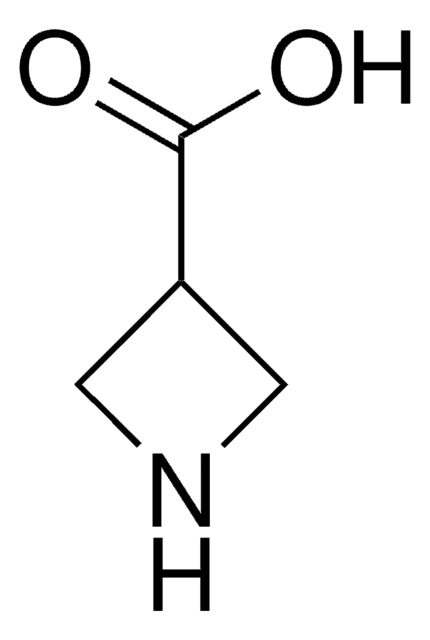
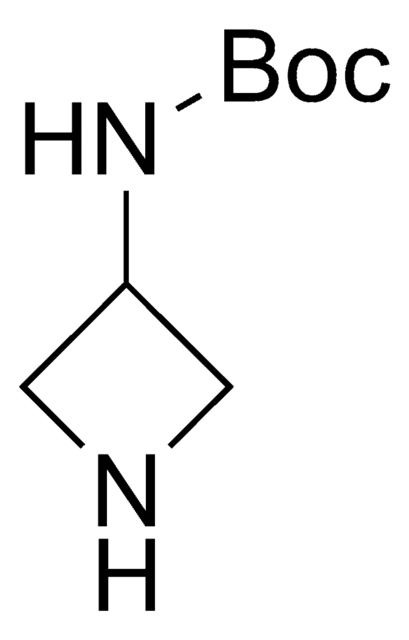


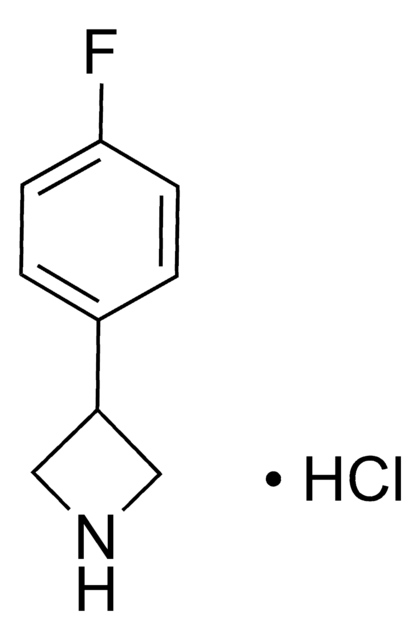
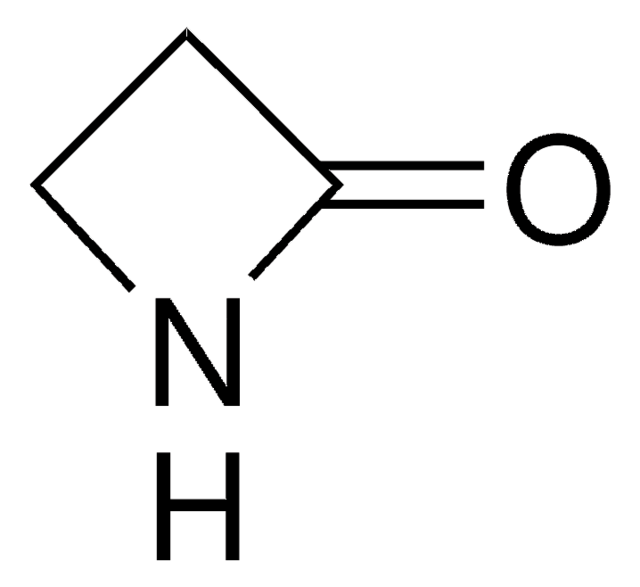
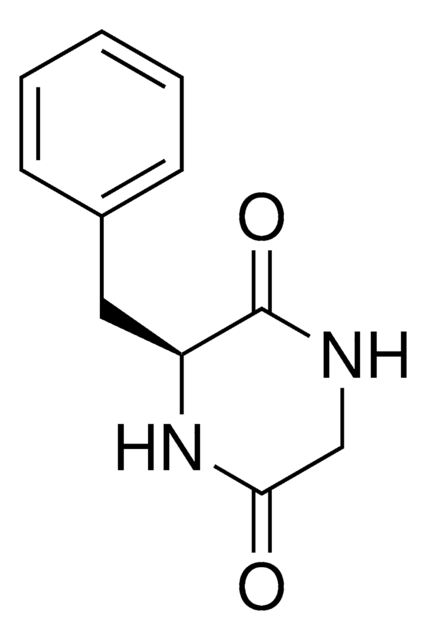
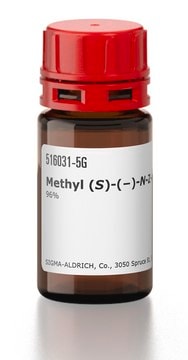
![tert-Butyl 2-oxo-1-oxa-8-azaspiro[4.5]decane-8-carboxylate](/deepweb/assets/sigmaaldrich/product/structures/108/251/f0893bce-f9a2-48e1-bbea-68aaaa08e2e7/640/f0893bce-f9a2-48e1-bbea-68aaaa08e2e7.png)

